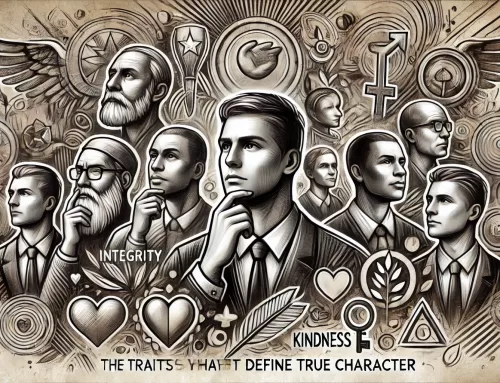We all know Peter Pan, right? The boy from Neverland who didn’t want to grow up? He loved adventure, fun, and the idea of staying young forever. But guess what? Some people in real life act like Peter Pan too! Minus the flying and pirate battles, of course. It’s called Peter Pan Disorder. So, let’s dive into what it means and how it can affect someone’s life—relationships, jobs, and more!
What Is Peter Pan Disorder?
Okay, so Peter Pan Disorder isn’t a medical condition, but it’s a fun name for when adults don’t want to take on grown-up responsibilities. These are the people who avoid things like paying bills, planning for the future, or having serious relationships. Instead, they focus on fun and avoid anything that feels “too adult.”
Think about Peter Pan. He lived in Neverland, where he didn’t have to worry about grown-up stuff like work or paying rent. People with Peter Pan Disorder live in their own version of Neverland. They might be grown-ups physically, but emotionally and mentally, they’re still stuck in kid-mode.
Why Do Some People Get Stuck in Neverland?
So, why do some people get stuck in Neverland while others become full-on adults? There are lots of reasons. Let’s break it down:
1. Fear of Responsibility
Let’s be real—adulting can be a lot! There are bills, jobs, and relationships to deal with, and some people feel overwhelmed by it all. For them, responsibility equals stress. Instead of facing these tasks head-on, they avoid them and stick to things that feel easy and fun.
- Avoiding commitments: They might avoid long-term relationships, serious jobs, or even small tasks like cleaning up.
- Procrastination: They’ll put things off until the very last minute, like paying bills or making important decisions.
- Distractions: To escape adulting, they dive into fun stuff like video games, binge-watching shows, or partying.
2. Overprotective Parents
Sometimes, the way someone was raised makes it hard for them to grow up. If you had parents who did everything for you, you might not have learned how to handle life on your own. Here’s how overprotective parenting can create a Peter Pan situation:
- Lack of independence: If you never had to make decisions, you might struggle with adult responsibilities.
- Fear of failure: If your parents shielded you from failing, you might be scared to take risks, like getting a job or trying something new.
- Delayed adulthood: If your parents are still supporting you financially or letting you live at home with no pressure, why grow up?
3. Fear of Failure
No one likes to mess up, right? But for some people, the fear of failing is so huge, it keeps them from even trying. Here’s how that works:
- Perfectionism: If you can’t be perfect at something right away, why even try? This leads to avoiding tasks or procrastinating.
- Low self-confidence: People with Peter Pan Disorder might think they’re not capable of handling grown-up tasks, so they avoid them.
- Avoiding risks: Adulthood means taking risks—whether it’s applying for a job or committing to a relationship. But for someone who’s afraid of failing, it’s easier to avoid these things and stay in their comfort zone.
4. Comfort Zone
We all love being in our comfort zone—it’s familiar and safe. But staying there too long can keep you from growing up. Here’s how the comfort zone plays a role in Peter Pan Disorder:
- Staying in the past: Some people get nostalgic for the good ol’ days of childhood and refuse to move forward.
- Avoiding change: Growing up means dealing with changes—new jobs, new responsibilities, and new challenges. But change can feel scary, so they stick with what’s easy and known.
- Relying on others: Why step up when someone else will handle the adult stuff? Whether it’s parents, partners, or friends, they let others deal with the tough stuff.
5. The Pursuit of Fun
Who doesn’t love having fun? But for someone with Peter Pan Disorder, fun comes before everything else. They’re always chasing the next good time, whether it’s playing games, going on spontaneous trips, or hanging out with friends.
- Instant gratification: They focus on what feels good right now, without thinking about the future.
- Escapism: Fun activities help them escape the stresses of real life.
- Avoiding tasks: The more fun they have, the less time they spend on adult stuff like work, relationships, or finances.
Signs of Peter Pan Disorder
Wondering if you or someone you know might have Peter Pan Disorder? Here are some signs:
1. Avoiding Responsibility
They dodge adult responsibilities like paying bills, holding down a steady job, or even doing basic chores. They might expect others to handle these things for them.
2. No Long-Term Planning
Talking about the future—whether it’s buying a house, saving for retirement, or even getting married—makes them uncomfortable. They prefer to live in the moment.
3. Prioritizing Fun Over Commitments
They’re always chasing fun, whether it’s video games, hanging out with friends, or going on trips. But when it’s time to commit to something serious, they back out.
4. Emotional Immaturity
They struggle with handling serious conversations or deep feelings. Instead, they joke around or change the subject when things get too real.
5. Blaming Others
Instead of owning up to their mistakes, they blame other people or situations.
How Peter Pan Disorder Affects Relationships
Being in a relationship with someone who has Peter Pan Disorder can feel like trying to row a boat with one oar. Here’s how it can impact your relationship:
1. Communication Breakdowns
If one person avoids serious conversations about the future or responsibilities, it can make the relationship feel stuck. Over time, this lack of deep communication can create frustration and distance.
2. Unequal Responsibilities
One partner might end up doing all the adult stuff—like paying bills, making plans, or handling the housework—while the other avoids it. This imbalance can lead to feelings of resentment.
3. Trust Issues
When someone is unreliable and avoids commitment, it’s hard to build trust. Over time, you might wonder if you can count on them when things get tough.
4. Emotional Distance
Peter Pan Disorder can create emotional distance because one partner may avoid vulnerability or serious conversations. Without emotional closeness, the relationship might feel shallow.
5. Resentment
If you’re always carrying the load of adult responsibilities, it’s natural to start feeling resentful. This resentment can chip away at the love and connection in the relationship.
How Peter Pan Disorder Affects Careers
Peter Pan Disorder doesn’t just affect relationships—it also impacts careers. Here’s how:
1. Job-Hopping
Someone with Peter Pan Disorder might jump from job to job, avoiding long-term commitments. They get bored or overwhelmed easily, which leads to job-hopping.
2. Avoiding Promotions
Even if they have a steady job, they might avoid promotions because they don’t want the added responsibility. Instead, they stay in a low-stress role, missing out on growth opportunities.
3. Lack of Ambition
They might not have big career goals because ambition feels too stressful. Instead of striving for success, they settle for what feels easy.
4. Poor Work-Life Balance
People with Peter Pan Disorder often prioritize fun over work. They might call in sick to go on trips or slack off at work, leading to poor performance and missed opportunities.
How to Overcome Peter Pan Disorder
The good news? Peter Pan Disorder isn’t forever! Here’s how to grow up—without losing your sense of fun:
1. Start Small
You don’t have to become a full-blown adult overnight. Start by taking on small responsibilities, like paying a bill or cooking a meal. These small wins will build confidence.
2. Face Your Fears
Adulting can be scary, but facing those fears is key to growing up. Whether it’s taking on a new challenge at work or having a tough conversation, start by tackling one fear at a time.
3. Seek Therapy
If you’re struggling to figure out why you avoid adult responsibilities, therapy can help. A therapist can give you tools to handle adult challenges and overcome your fears.
4. Set Goals
Setting long-term goals—like saving money, advancing in your career, or building a relationship—gives you something to work toward. Break these goals into smaller steps and celebrate each success.
5. Take Responsibility
Admitting when you make a mistake and owning your actions is a big part of growing up. It shows others you’re ready to handle adult challenges.
6. Find Balance
Growing up doesn’t mean giving up fun! It’s all about balance. You can still enjoy video games, hanging out with friends, and traveling—just make sure you’re also handling your responsibilities.
Conclusion: Leaving Neverland
Peter Pan Disorder can be a fun way to describe someone who avoids growing up, but it can have real consequences for relationships, careers, and personal happiness. The key to overcoming it is learning to balance the joys of life with the responsibilities that come with adulthood.
With small steps, the right mindset, and the willingness to face your fears, you can build a life that’s both fun and fulfilling—no magic required!





